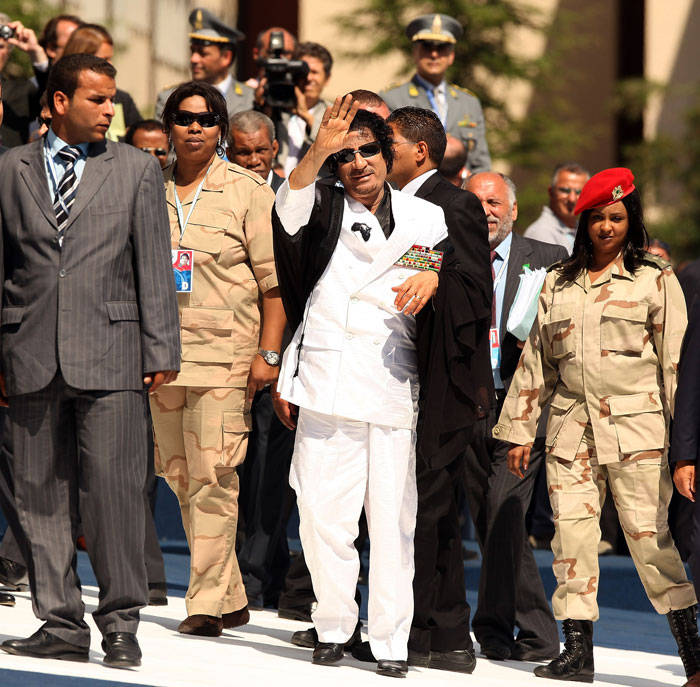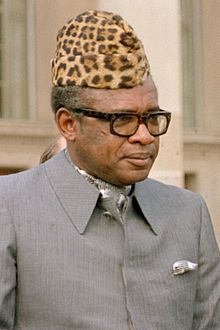Manifestation of Political Power and its Diversity
‘All human things are subject to decay and when fate summons monarchs must obey’– Excerpt from Mac Flecnoe (1682) John Dryden
‘’Power tends to corrupt and absolute power corrupts absolutely’– John Emerich Edward Dalberg -1st Baron Acton also known as Lord Acton (1834-1902) Former Regius Professor of Modern History-University of Cambridge
Good and bad governments
Many forms of government have existed and will continue to exist in the World. Aristotle classified governments simply as good
governments, which are those that serve the general welfare of their subjects and bad governments, which are those that subordinate the general good to the good of the individuals in power. Aristotle went on to distinguish three categories of government: monarchy, governed by a single individual; aristocracy, government by a select few; and democracy, government by many.
Kleptocracy
The Greek Philosophers after Aristotle, influenced by his thoughts, classified three degenerate forms of government: tyranny, rule by an individual in his or her own interest; oligarchy, rule by a few people in their own interest; and ochlocracy.mob rule. In more recent times a system known as kleptocracy has come to be known which is a government which shares the country’s wealth with its political allies.
A good example of kleptocracy was seen in the government of Mobutu Sese Seko (1930-1997),President of Zaire1965-1997),who seized power by force in 1965 and held it for more than three decades. Mobutu held on to political power amassing vast amounts of wealth while his country collapsed. In November 1965, Mobutu backed by the army staged a coup and declared himself the President.
Mobutu – Executing rivals he saw as threats
He abolished the office of prime minister and cancelled the elections scheduled in 1966.In 1970, Mobutu established the Popular Movement of the Revolution (MPR) as the sole political party, which all citizens were obliged to join. In 1970, Mobutu running unopposed was elected President. Mobutu as one of Africa’s most tenacious dictators crushed political dissent by executing rivals whom he saw as threats. He absconded with billions of dollars in western aid and export earnings generated by the country’s mineral wealth. Zaire, a potentially wealthy country plagued with corruption and mismanagement, suffered economic ruin.
All corrupt regime end in misery
In May 1997 faced with a rebellion, Mobutu fled the country and died in exile in Rabat, Morocco in 1997.Impoverished and unstable, the Democratic Republic of Congo remains in the grip of the legacy left behind by Mobutu. The story of Mobutu leads us to realize how true the two sayings I have quoted at the beginning of this piece have come to be. All corrupt regimes would one day come to an end unfortunately bringing misery to their subjects.
Democracy
Democracy (Greek;demos-the people ;ktatein-to rule) is a political system in which the people of a country rule through any form of government they choose to establish. In modern democracies supreme authority is exercised by representatives elected by the people and such representatives are responsible to the electorate. In many democracies both the executive head of state and the members of the legislature are elected. Although used interchangeably the terms democracy and republic are not synonymous. Although in both systems the power to rule is delegated to the elected representatives, in a republic, however, those with delegated power are expected to act on their own best judgement of the needs and interests of the country but in a democracy such representatives directly reflect the known or ascertained views of their constituents, sometimes subordinating their own judgement. We have to note here that Sri Lanka is known as the Democratic Socialist Republic of Sri Lanka. Thus whilst embracing the principles of both democracy and socialism, it is also a republic.
Socialism
Some scholars have described socialism as a concept and party based political movement, originally based in the organized working class, generally antagonistic towards capitalism. While the final aim of socialism was a communist or classless society, they increasingly concentrated on social reforms within capitalism, as seen in contemporary Chinese political culture. As the movement developed, the concept itself acquired different meanings in different times and places. The term ‘socialism’ began to be used in the first half of the 19th century by radical intellectuals, who considered themselves to be the true heirs to the Enlightenment. With Karl Marx and Friedrich Engels, socialism acquired a theory of exploitation and a theory of history.
Marxism
Marxism held that capitalism was the result of a historical process characterized by the increasing conflict between the classes.
The transformation of socialism from a doctrine held by a relatively small number of intellectuals and activists into the ideology of  mass working class parties coincided with the industrialization of Europe. In modern time the difficulty facing those who call themselves socialist is that while they need capitalism and the economic growth and prosperity that it can generate, capitalism does not need them.
mass working class parties coincided with the industrialization of Europe. In modern time the difficulty facing those who call themselves socialist is that while they need capitalism and the economic growth and prosperity that it can generate, capitalism does not need them.
Tyranny
Tyranny has been often described as acquisition and exercise of civil authority over government by violent and /or oppressive means. Tyranny contrasts sharply with liberal democracy; the nature of tyrannical rule makes liberal democracy intolerable, Tyrannies tend to be self-justifying and self-authenticating As a result pluralism and the notion of democratic legitimacy are flatly rejected and those associated with them often become early targets of oppression. More than in a dictatorship, a tyranny is concerned exclusively with the pursuit of power by force; all tyrants are dictators but not every dictator is a tyrant.
Despots hold on to position by eliminating dissent
Basically, tyranny equates to despotism, arbitrary autocratic rule by a self appointed despot who holds his position by eliminating opposition and dissent. A good example is that of Idi Amin. A more complex and sophisticated form of tyranny is totalitarianism, where government is motivated by an all –encompassing ideology or by a sense of destiny. Every aspect of life is supervised with a secret police force to ensure conformity. A good example is that of the Gestapo during Hitler’s time. Although political debate is not permitted, totalitarian regimes often imitate democratic political process to claim some spurious legitimacy. Tyranny is a decisive and aggressive form of government and this can give it a certain appeal in adverse social and economic conditions. With their promises of simple and rapid solutions to complex problems, tyrants could be a feature of political life in many unstable countries.
Political legitimacy
Legitimacy is an important feature of good governance. The word legitimacy means lawful, proper and conforming to a standard. Political legitimacy is a difficult concept to define as while it is used to describe actions undertaken by political actors that are widely regarded as lawful and proper, such actions may be considered legitimate by one group and not by another. Legitimacy is thus created by a certain degree of common consent and acceptance. Legitimacy may be attributed to governments, states and political acts.
Acceptance by the people may make illegitimate action legitimate
If a government is overthrown by a rival political group in a coup de’tat this may be described as an illegitimate action, since it violates the legally accepted constitution of the country; but if the action is supported by the majority of the people it purports to govern, and the people recognize the new government, it acquires legitimacy. This is presently happening in Libya where the former military ruler Muammar Gaddafi has been overthrown by a rebellion of the Libyan people.
Terrorism
Terrorism is actual or threatened use of violence for political gains, not only against the victims themselves but also against larger, related groups, of a scope often transcending national boundaries, as seen in the assassination of the then Prime Minister of India, Rajiv Gandhi by a LTTE suicide bomber. The objective of terrorism is not so much the accomplishment of military ends as the propagation of terror in the target community, which is thereby coerced into acting according to the terrorist wishes. The manner in which the LTTE terrorized successive governments in Sri Lanka and made them to accede to their demands is no secret.
Politician vs Statesman
Finally, it is the people of a country who choose their legislators unto whom political power is vested. It is also the same people who will throw such persons out of power when such leaders abuse that power to the detriment of the country and its people. If the people elect the right people to office they are assured of a good government. As Sir Ivor Jennings once stated : ’A politician is a selfish person who only thinks of how to acquire power at the next election but a statesman is a selfless person who thinks of the welfare and the future of the country and not his own.’ Great statesmen who served their nations selflessly as Mahathma Gandhi and Abraham Lincoln are some examples.
(Material for this piece has been collected from various sources available on the internet)
Lakshman Keerthisinghe, LL.B., LL.M. is an Attorney-at-Law and a former senior consultant in the Law Reform Project funded by the UNDP for the Human Rights Commission of Sri Lanka


September 15, 2011 at 8:33 am
[…] for Asian Correspondent based in Chennai, India. He writes about Sri Lanka and south India.By Yadhu Roshan The Democratic Socialist Republic of Sri Lanka, earlier called Ceylon, is an island …349×238.jpg" alt="The pearl of The Indian ocean" width="349" height="238" […]